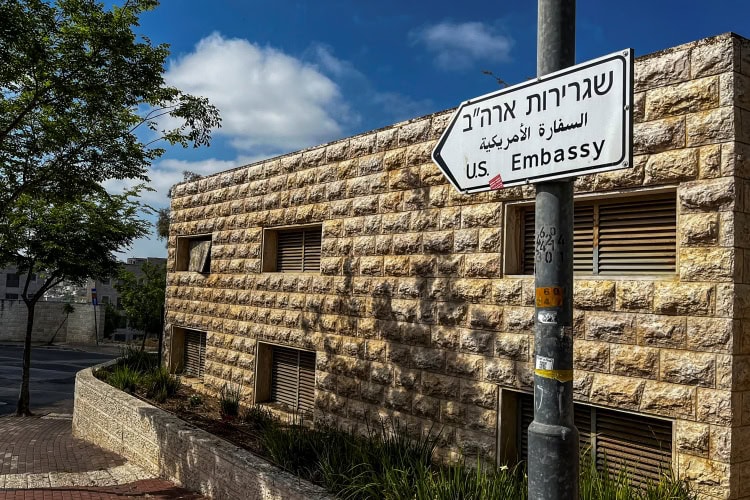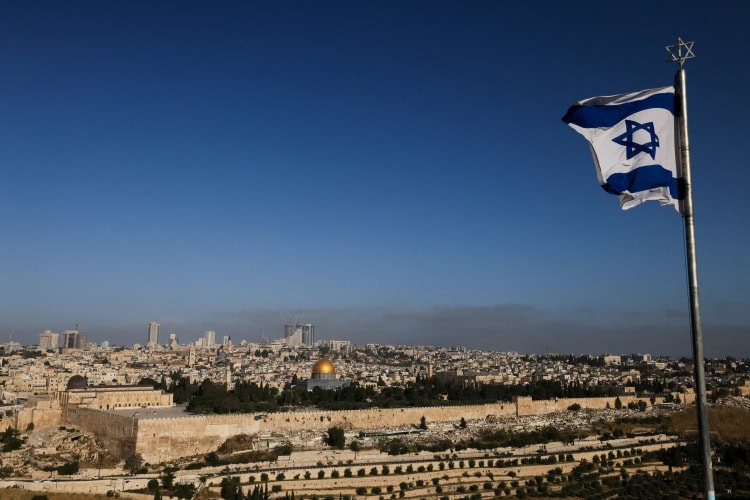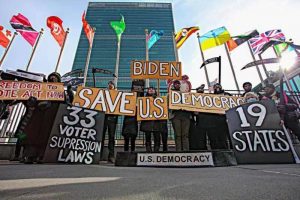Explosions rocked Iran’s central Isfahan province on Friday, state media reported, while US officials told media that Israel had carried out an attack in retaliation against the Islamic republic.
The attack follows less than a week after Tehran launched a wave of more than 300 drones and missiles in its first ever attack on Israeli territory. The unprecedented attack was in itself a rebuke to an earlier attack in Syria for which the blame was widely placed on Israel.
The international community has called for well-considered action as the mounting counter-attacks between the arch-enemies escalate. They also appealed to both camps not to allow tensions over the conflict in Gaza to degenerate into a much wider regional conflict.
What was hit?
Early Friday, Iran’s Fars news agency reported “three explosions” heard near the Shekari army base in northwestern Isfahan province.
The spokesman for Iran’s space agency, Hossein Dalirian, said several drones were shot down and there was “no missile attack for now”.
An unnamed US official told CNN that the target of the Israeli attack in Iran was not aimed at their nuclear capacity.
Iran’s Tansim news agency also reported the “nuclear facilities in Isfahan province are completely safe”.
Tasnim also reported that according to informed sources, Iran denied that the attack was launched from outside the country.
Explosions were also reported in southern Syria, a local activist group claimed.
How did Iran respond?

Anti-aircraft systems in several Iranian cities have been activated, state media reported.
Flights to Tehran, Isfahan and Shiraz were suspended, as well as to several other airports nationwide, the Mehr news agency reported.
Software that monitors flights showed commercial flights avoiding western Iran, including Isfahan, and flying around Tehran to the north and east.
A plane from flydubai had already left for Tehran and had to return after the airport in the Iranian capital was closed, the Emirati shipping company said in a statement.
On Friday morning, an Iranian TV news channel had a live broadcast of normal traffic flow at a roundabout in Isfahan, while the official IRNA news agency reported that “no major damage” was reported after the explosions.
Why now?
Iran-backed armed groups in the region have carried out attacks on Israel since the Gaza war broke out in October.
Lebanon’s Hezbollah and the Palestinian militant group Hamas are backed by Iran.
However, the recent and direct Israel-Iran skirmishes are now in uncharted waters.
In response to a deadly attack on the Iranian consulate in Damascus on April 1 – an attack for which Israel was blamed – Tehran unleashed hundreds of missiles and drones on its archenemy.
Israel undertook to take revenge for the attack which was carried out on a Saturday. Israel largely repelled the attack and no deaths were reported.
Just hours before the explosions were heard in Iran on Friday, the foreign minister warned that Israel would “regret” any attack on his country.
Hossein Amir-Abdollahian, Iran’s foreign minister, at a meeting of the United Nations (UN) Security Council labeled the Islamic country’s weekend attack as a “legitimate defense” and said Israel should “cease any further military adventures”.
What was the response?
Israel’s military said early Friday it had “no comment at this stage” when asked about reports of explosions and attacks in Iran and Syria.
There was also no immediate response from the White House or the Pentagon.
Several US news agencies reported that Washington had been warned in advance about Israel’s attacks, but that the US had not given its support to the operation or been involved in it at all.








